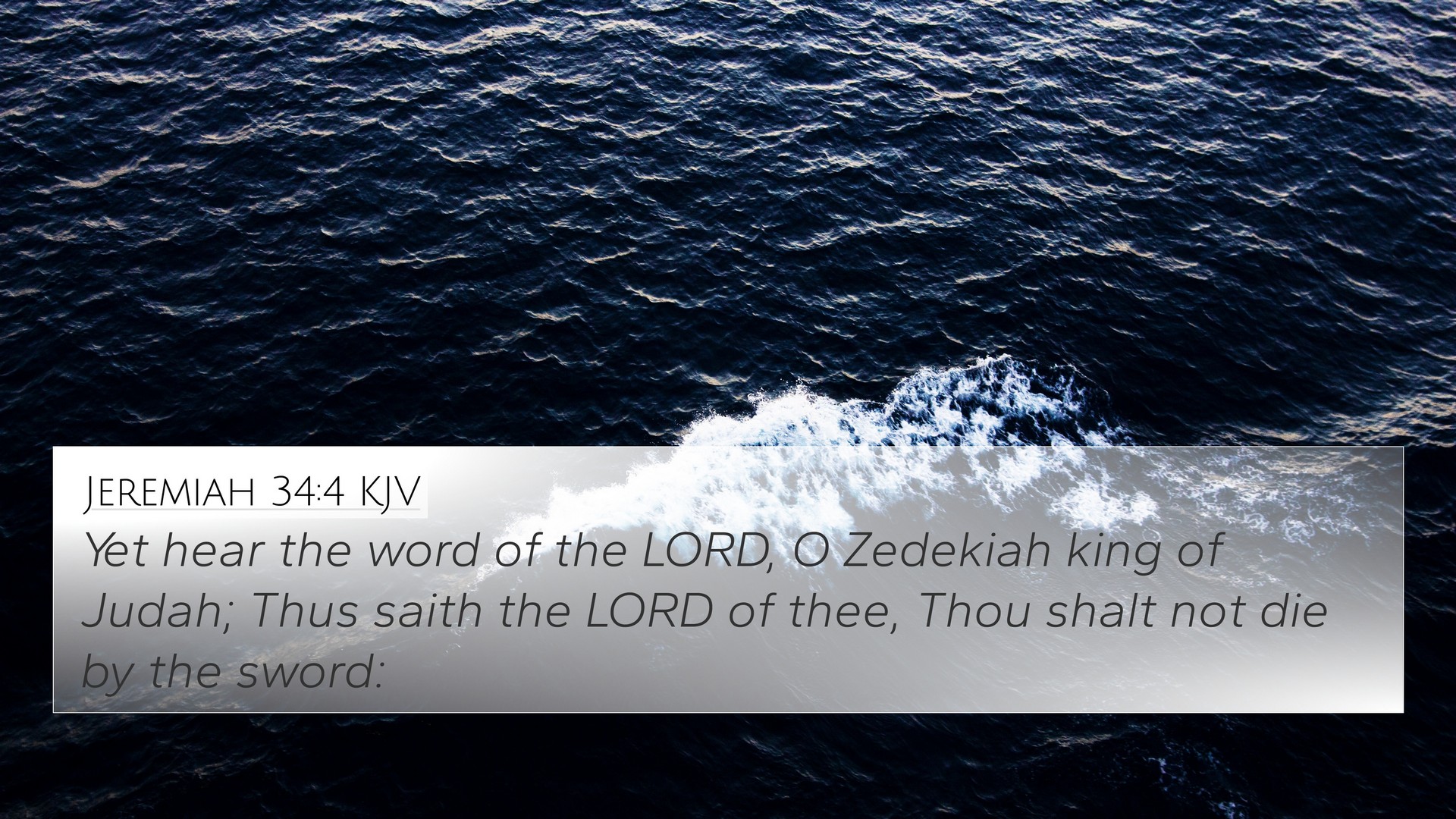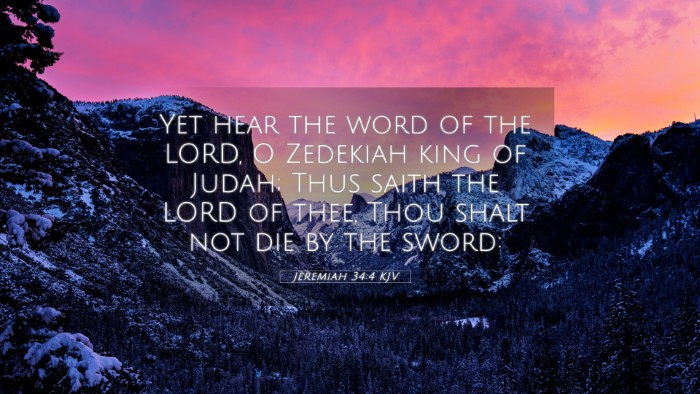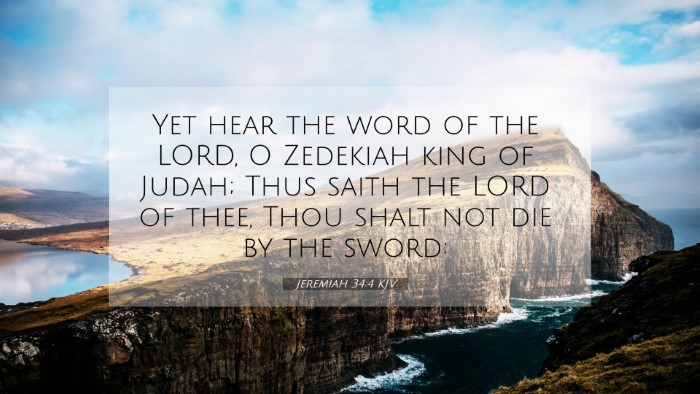Understanding Jeremiah 34:4
Jeremiah 34:4 is a poignant verse nestled within a chapter that charts the backdrop of Jerusalem’s demise and the challenges faced by the people of Judah. This verse reads: "Yet hear the word of the LORD, O Zedekiah king of Judah; Thus saith the LORD of thee, Thou shalt not die by the sword."
Contextual Overview
To fully comprehend the meaning of Jeremiah 34:4, we must examine its surrounding context. The prophet Jeremiah speaks to King Zedekiah during the siege of Jerusalem by the Babylonian army. God’s message promises Zedekiah that he will not perish in battle, but rather will die in peace. This assurance stands in stark contrast to the fate that awaited many others in Jerusalem and serves to emphasize themes of divine fidelity and sovereignty.
Insights from Public Domain Commentaries
Matthew Henry's Commentary
Matthew Henry interprets this verse as a message from God that highlights His mercy and grace even in times of impending judgment. Despite the looming threat from Babylon, Henry elucidates that Zedekiah is granted a form of reprieve, showcasing God's willingness to extend mercy to those who heed His word.
Albert Barnes' Commentary
Albert Barnes reflects on the implications of this declaration to Zedekiah and points out that it indicates an opportunity for repentance. He asserts that the king’s eventual death in peace rather than conflict illustrates God's plan and establishes a contrast between divine judgment and mercy, emphasizing that divine provisions are available even to those in positions of power.
Adam Clarke's Commentary
Adam Clarke brings attention to the historical significance of Zedekiah’s fate. He notes that Zedekiah would die in exile rather than through violent death, pointing to the complexities of leadership under divine judgment. Clarke underlines that the promise of a peaceful death serves as a consolation amidst the chaos and highlights the certainty of God’s word amid Israel’s turmoil.
Thematic Connections
This verse serves as a pivotal point for exploring several themes in the Bible, including:
- Divine Mercy: Reflects God's mercy even in the face of judgment.
- God’s Sovereignty: Demonstrates His ultimate control over life and death.
- Repentance: Encourages leaders and individuals to turn back to God for mercy.
- Judgment vs. Grace: Highlights the tension between divine judgment and grace.
Cross-References
Here are notable Bible verses that relate to Jeremiah 34:4:
- Jeremiah 39:5 - The capture of Zedekiah emphasizes the judgments that befall those who reject God.
- 2 Kings 25:6-7 - Reiterates the fate of Zedekiah and showcases the harsh consequences of disobedience.
- Ezekiel 12:13 - Speaks of God's judgment upon the leaders of Israel, contrasting Zedekiah's unique experience.
- Isaiah 38:1-5 - The story of King Hezekiah showcases God's mercy in sparing a king's life.
- Jeremiah 21:4-7 - Offers insight into God’s deliverance for the king if he chooses to obey divine commands.
- Proverbs 21:1 - Illustrates that the heart of a king is in God’s hand, emphasizing divine authority over rulers.
- Psalm 37:39-40 - Offers assurance that the Lord saves the righteous, resonating with the theme of divine protection.
Application and Conclusion
The message in Jeremiah 34:4 resonates through the ages, offering both a warning and a promise. It reminds us of the importance of seeking God’s guidance and mercy through our trials. While this specific prophecy was directed toward Zedekiah, it serves as a broader lesson to all leaders and followers of faith about the necessity of alignment with God's will.
In our pursuit of a deeper understanding of scripture, utilizing scriptural cross-referencing and Bible concordances becomes essential. They are invaluable tools for those engaging in cross-referencing Bible studies, providing insights into connections between Bible verses. As we delve deeper into the themes presented in this verse, we uncover profound truths that inform and transform our faith journey.


